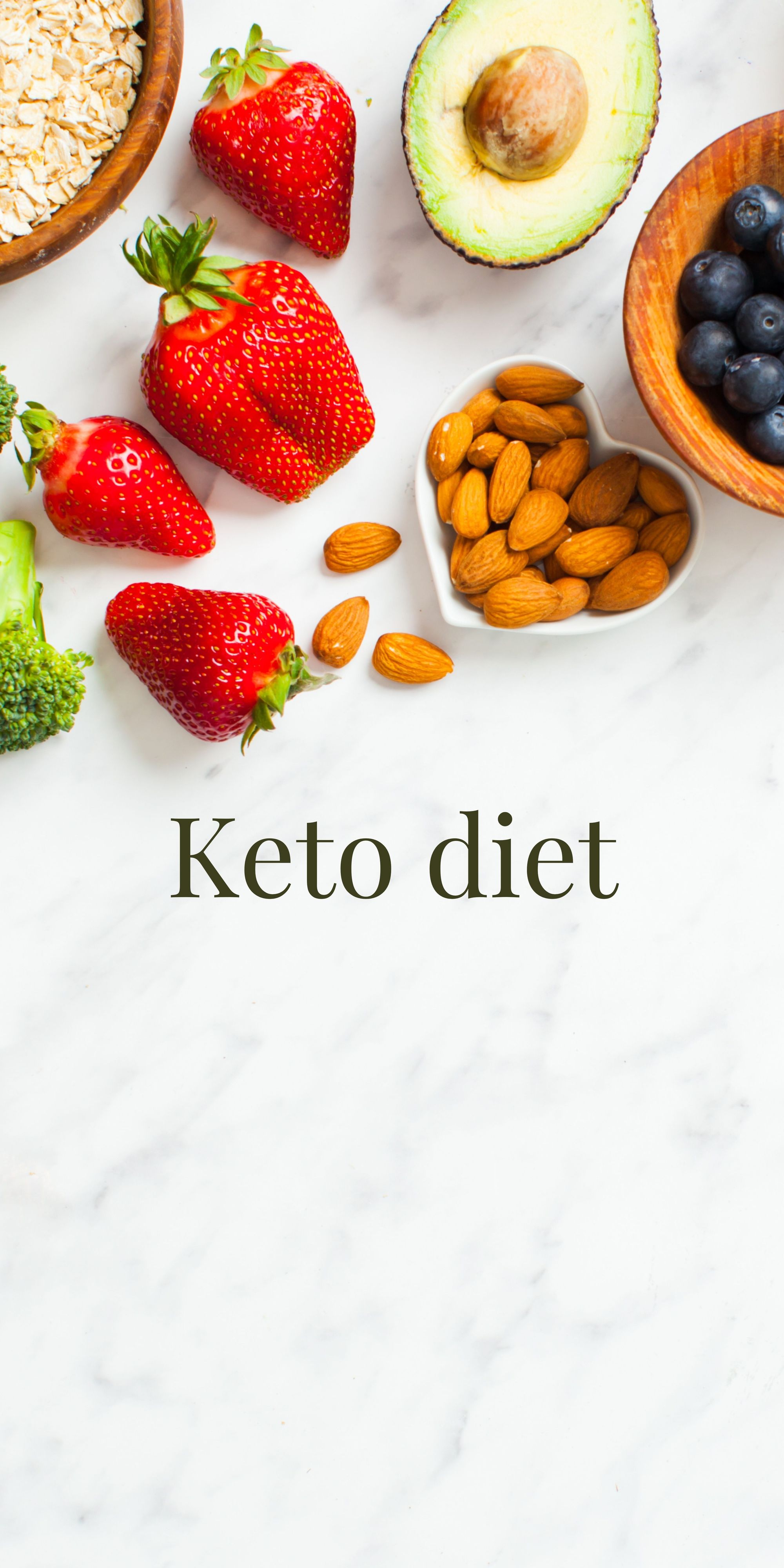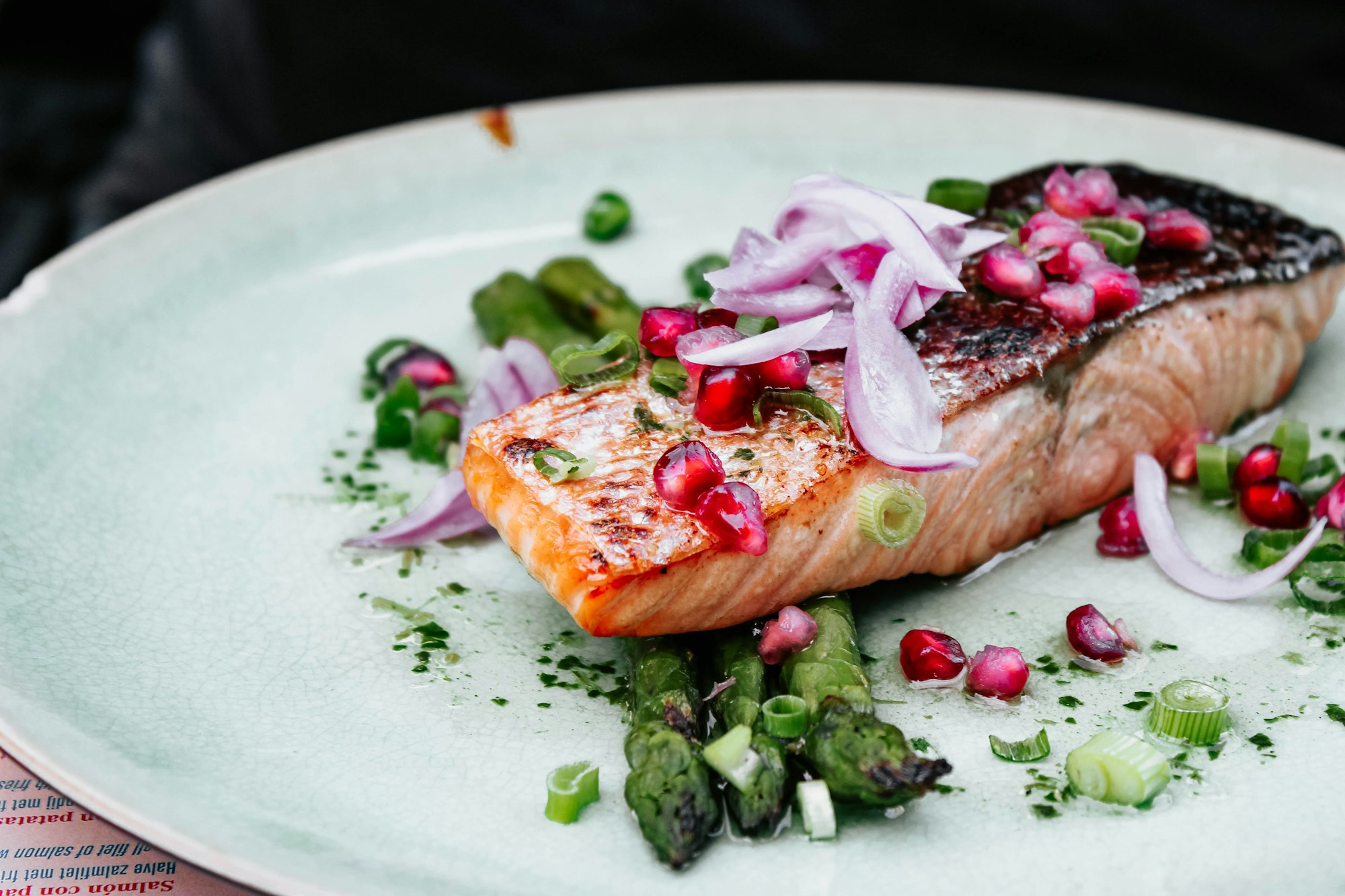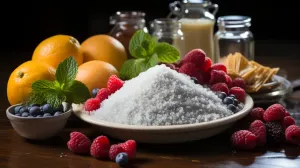
The ketogenic, or "keto," diet is a high-fat, low-carbohydrate eating plan that has been gaining popularity in recent years. The keto diet is based on the premise that by drastically cutting carbohydrates and replacing them with healthy fats, the body will enter a state of ketosis, which results in weight loss and improved blood sugar control. Although the keto diet has only been studied extensively in recent years, there is promising evidence to suggest that it may indeed be an effective way to lose weight and improve blood sugar control. For people who are struggling to lose weight or control their blood sugar, the keto diet may be worth considering. The diet typically limits carbs to 20–50 grams per day, which forces the body to burn fat for fuel instead of glucose.
Here are 7 healthy foods to eat on the keto diet.
Keto dieters often turn to dietary supplements to help them hit their stay in ketosis. While there is no one-size-fits-all approach to the Keto diet, there are some common supplements that many Keto dieters take.
Omega-3
It's important to maintain a good omega 3 and 6 ratio. Fish or algae oils for vegans help reduce inflammation, blood pressure, metabolic syndrome and more. You may already know that fish oil has benefits for memory, concentration and also for weight loss.
Hawaiian Spirulina
This microalga contains ALL the essential amino acids, in addition to being provided with several minerals and vitamins. It has the power to reduce LDL cholesterol levels (note that LDL is not bad, but more easily oxidized in the bloodstream by sugar).
Sodium/Potassium/Magnesium
When carbohydrate intake is reduced, electrolytes such as sodium, potassium and magnesium are excreted more by the kidneys. It is therefore important to take an electrolyte supplement to relieve symptoms such as fatigue, headaches, muscle cramps, palpitations, caused by a lack of minerals.
Vitamin D
Vitamin D is actually a hormone that is responsible for turning on and off more than 900 genes in the body. It helps in the absorption of magnesium and calcium, increases testosterone levels and increases muscle growth. Taking vitamin D is recommended, among others, for people following the ketogenic diet, but also for everyone, because we find that more than 25% of Americans lack vitamin D. Finally, remember that exposure to the sun is very important to ensure the synthesis of this vitamin by the body.
Salts/Esters of exogenous ketones
This is the new trend in the ketogenic diet. It is a source of exogenous ketones which act like ketogenesis. Exogenous ketone salts increase the level of ketone bodies, activate or maintain the state of ketosis in cases where carbohydrate consumption would be a little higher.
Animal proteins
Eggs
Keto dieters often turn to eggs as a source of protein because they are low in carbs and high in protein. Each large egg contains less than 1 gram of carbs and about 6 grams of protein. In addition, eggs have been shown to trigger hormones that increase feelings of fullness. This may make them an ideal breakfast for people trying to lose weight on the keto diet. Eggs are also a good source of several vitamins and minerals, including choline, selenium, and vitamin D. They also contain antioxidants that may help protect your eyes from age-related damage.
Meat and poultry
Ketosis, the state of having your body use fat instead carbs for energy needs can be achieved by eating plenty meat and poultry. With no carbohydrates present in these foods they are rich with vitamins B1 (thiamine) through niacin as well several important minerals including iron which helps keep you feeling energized all day long. They’re also a great source of high quality protein, which may help preserve muscle mass during a very low carb diet. If you’re following the keto diet, be sure to choose lean cuts of meat and remove all visible fat before cooking
Seafood
One of the key features is the restriction of carbohydrates. This can make it difficult to know what to eat, but fortunately, fish and shellfish are very keto-friendly. The health benefits of eating seafood are undeniable. Not only does it nearly carb-free but also rich in B vitamins, potassium and selenium - which can help protect against heart disease or other things!. Shellfish such as shrimp and lobster are also excellent sources of protein and healthy fats. So if you're looking for keto-friendly foods, be sure to stock up on fish and shellfish.
Vegetables
High fat veggies
One of the benefits of the keto diet is that it allows people to enjoy foods that are normally off-limits on other diets, such as avocados and olives. While both avocados and olives are technically fruits, they are unique among vegetables in that they are fairly high in fat. This makes them an ideal food for people on the keto diet. In addition to being high in fat, avocados and olives also contain fiber and are low in net carbs, making them a nutritious and filling food choice.
Summer squash
Summer squash, such as yellow squash and zucchini, are extremely versatile and low in carbs, making them a great choice for the keto diet. Zucchini is especially popular on keto, as it can be spiralized to make noodles, which makes an excellent substitute for pasta or noodles. Summer squash is also a good source of vitamins C and A, as well as potassium. So not only is it a delicious and healthy choice for your keto diet, but it's also good for you!
Peppers
While all peppers are technically fruits, they're treated like vegetables in cooking. This makes them a great addition to many keto-friendly dishes. Small hot peppers, such as jalapeños, can add spice to recipes. Meanwhile, larger, milder peppers such as bell peppers and poblanos can be used in numerous dishes or stuffed to make flavorful main courses. So whether you're looking to add a little bit of spice or a lot of flavor, peppers are a great option for those following the keto diet.
Green leafy vegetables
Green leafy veggies are here to help you lose weight and stay healthy! These power-packed greens are extremely low in carbs, making them an excellent addition to any keto meal plan. But that's not all - they're also rich in vitamins, minerals, and antioxidants, which are essential for overall health and wellness. So whether you're looking to shed a few pounds or just boost your nutrient intake, adding green leafy veggies to your diet is a smart choice. So next time you're at the grocery store, stock up on these nutrient-dense greens and enjoy the weight loss benefits of a keto diet!
Olive oil
Olive oil is a great source of monounsaturated fat. In fact, oleic acid, the main type of fat found in olive oil, has been linked to a decrease in heart disease risk factors. For example, one study found that oleic acid reduced inflammation and improved blood vessel function in people with coronary artery disease. What’s more, olive oil is also a good source of antioxidants, which protect the body against damage from harmful molecules. In fact, some research suggests that the antioxidants in olive oil may help to lower blood pressure and reduce LDL (“bad”) cholesterol levels. Thus, olive oil provides impressive benefits for your heart health.
Références
Spritzler, F. dietdoctor (2021). Do you need electrolyte supplementation on a low-carb or keto diet? [article Web] répéré le 15 mars 2022 à https://www.dietdoctor.com/low-carb/keto/supplements
Sweeney (1998). National Library of Medecine.Regulation of the Na+/K+-ATPase by insulin: why and how?. [article Web] répéré le 13 mars 2022 https://pubmed.ncbi.nlm.nih.gov/9609121/
Zubiria, L. (2022). Le régime cétogène permet-il de perdre du poids ? [article Web], répéré le 10 mars 2022
à https://www.passeportsante.net/fr/Nutrition/Regimes/Fiche.aspx?doc=regime-cetogene




